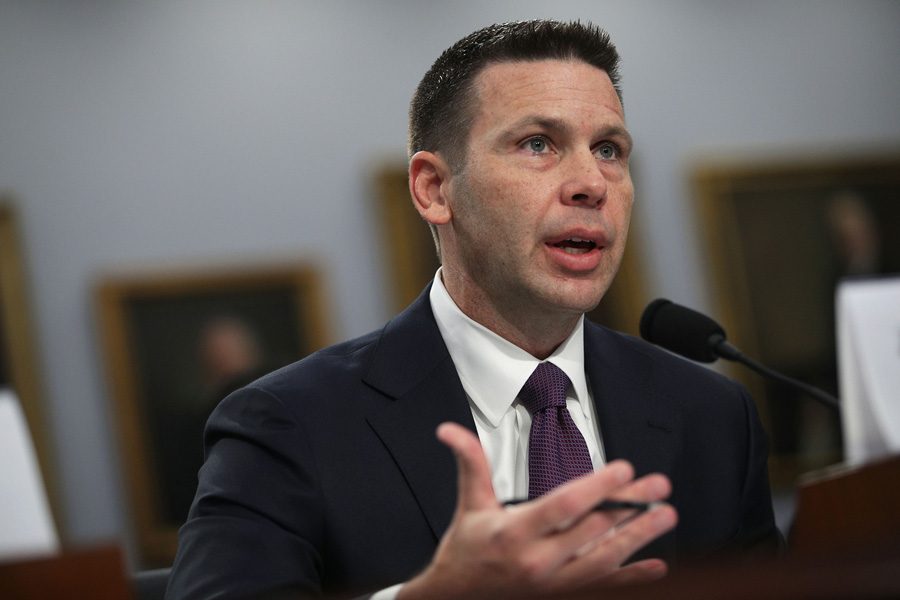Federal judge temporarily blocks stricter rules on student visas
Acting U.S. Homeland Security Secretary Kevin McAleenan. A federal judge barred McAleenan and the agency from enforcing new rules that would make it easier to find international students and scholars in violation of their visas.
May 6, 2019
A federal judge is putting a temporary halt to rules issued by the Trump administration that would make it easier to find international students and scholars in violation of their visas.
Judge Loretta Biggs of the U.S. District Court for the Middle District of North Carolina — who is overseeing a lawsuit against the policy — handed down the nationwide preliminary injunction of an August 2018 policy memorandum on unlawful presence time accrual. The judge concluded the regulations would cause “irreparable harm” to visa holders, making the injunction order necessary for the public interest.
The order is in place until the conclusion of the case, though Biggs cited the plaintiffs’ likelihood of winning as a reason for the ruling.
Northwestern had joined much of the higher education community in opposing the policy change, arguing it would make the U.S. a less welcoming place for international study and would harm American universities.
The policy changed federal rules so that visa holders would be found in violation of their visa terms the day they stop doing what their visa allows, like discontinuing their studies. The previous policy determined unlawful presence started the day an immigration official found a visa holder in violation.
The policy would make it easier to impose the 3- or 10-year bans handed down to scholars with more than 180 days of unlawful presence during a single visit, as it would allow the government to retroactively find visa holders in violation.
Biggs sided with the plaintiffs, who brought the suit against the U.S. Homeland Security Department and U.S. Citizenship and Immigration Services, in its motion seeking the injunction. She ruled the agencies rolled out the rules in violation of regulatory procedures and that they violated the Immigration and Nationality Act.
She also dismissed a motion by the defendants — the agencies and its directors — to dismiss the case, ruling the school had sufficient legal standing to bring the case forward because it would also be impacted by the rules.
The Trump administration has cracked down on student visas, even as the president has pushed for more legal immigration.
“International students and scholars are under heavy compliance burden,” Ravi Shankar, the director of the International Office, told The Daily in December. “And this really is such an added stress to everything else they have to deal with.”
NU and 65 schools filed an amicus brief in December supporting the plaintiffs — Guilford College in North Carolina and its International Club, The New School in New York, the Foothill-De Anza Community College District in California, Haverford College in Pennsylvania, The American Federation of Teachers and two students.
The brief argued that the rules would cause “significant and destructive uncertainty” to a system that depends on stability and orderly administration. As international students and scholars continue to face such uncertainty, the U.S. will no longer be a desirable destination for the world’s best talent, the brief said. Such loss of international talent is a harm to higher education institutions and the larger U.S. economic society, the brief argued.
The ruling would affect about 4,000 international students and 1,600 visiting scholars at Northwestern.
Email: aperez@u.northwestern.edu
Twitter: @_perezalan_



